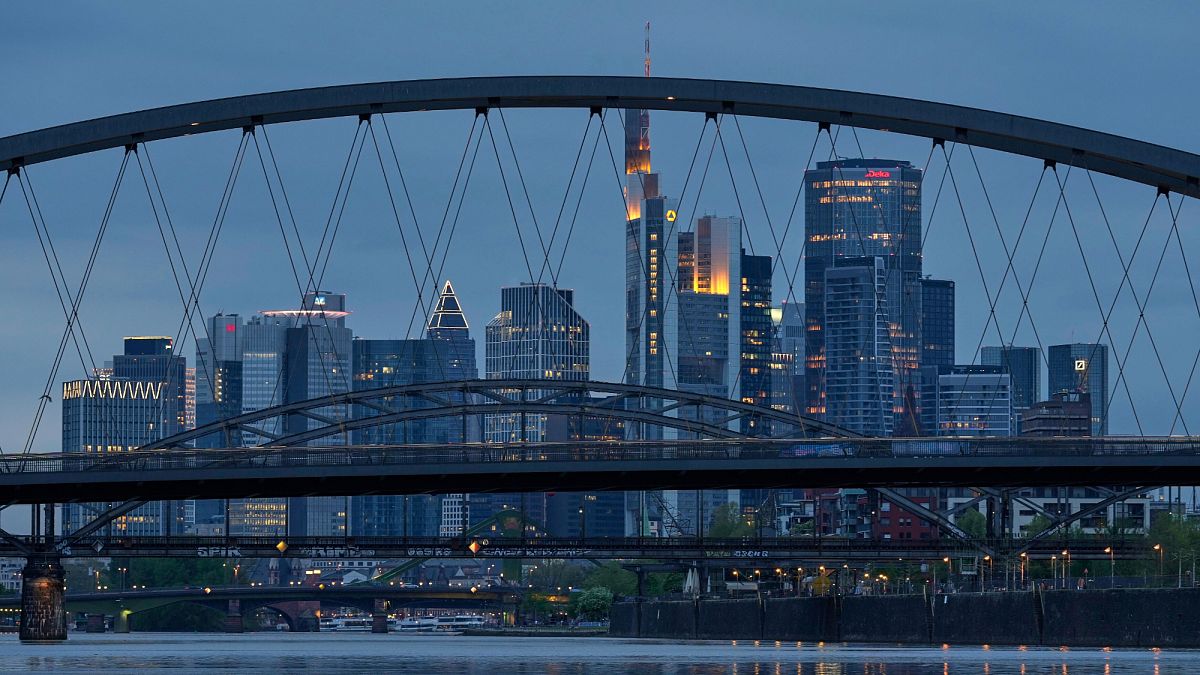Business activity in the eurozone eked out minimal growth in April, as a faltering services sector offset a surprise manufacturing rebound, while easing inflation strengthened expectations of a European Central Bank rate cut at its next June meeting.
The S&P Global Purchasing Managers’ Index (PMI) for the eurozone rose slightly to 50.1 in April, a level that technically signals growth, but only just. The reading, revised up from an initial 49.7, revealed an economy struggling to build on momentum from the first quarter of the year.
At the heart of this sluggish expansion is a divergence between sectors. Manufacturing output rose at its fastest pace in over two years, buoyed by improving supply chains and a rebound in industrial activity.
In contrast, the services sector—the bloc’s economic workhorse—barely expanded, with the Services PMI falling to 50.1 from March’s 51.0. It marked the weakest reading since late 2024 and suggests that demand across tourism, hospitality and business services is running out of steam.
Dr. Cyrus de la Rubia, Chief Economist at Hamburg Commercial Bank, said the broader picture remains subdued: “The services sector, which is a major player, practically stagnated in April. Even though manufacturing output saw a surprising uptick, it wasn’t enough to prevent the overall slowdown in growth.”
Demand drags, sentiment dims
Behind the headline figures, the underlying data paints a sobering picture. New business orders fell for an eleventh consecutive month, and at a marginally faster rate than in March. Both goods producers and service providers noted weaker sales, continuing a trend of soft demand that has restrained growth since mid-2023.
France stood out again for the wrong reasons, with its composite PMI signalling contraction for the eighth month in a row. The eurozone’s second-largest economy remains mired in political uncertainty and stagnation, contrasting with comparatively better performances in Spain, Italy and Germany.
“Spain is leading the pack in terms of growth, followed by Italy, then Germany with marginal growth, and France trailing behind,” said de la Rubia. “We expect Germany to soon outpace Italy thanks to a generous fiscal package, while France is likely to remain at the bottom for now.”
Employment across the bloc ticked up for a second straight month, as rising headcounts in services offset ongoing declines in manufacturing. However, businesses appear hesitant to expand their workforce, reflecting deeper caution amid persistent economic uncertainty.
Confidence about the future has also taken a hit. Business expectations for the year ahead declined to their lowest level in almost two and a half years. It marks the fourth consecutive monthly dip, underlining how soft demand and geopolitical uncertainty are weighing on sentiment.
ECB gets breathing space on inflation
There is a silver lining for policymakers. Price pressures continued to moderate in April, with input cost inflation at a five-month low and output charges rising at their slowest pace in 2025 so far. This could bolster the European Central Bank’s case for a rate cut in June, a move several Governing Council members have already signalled.
“In the services sector, cost pressures are still relatively high, though they have eased a bit over the past couple of months,” said de la Rubia. “Inflation is down for sales prices and continued to trend lower… These latest figures seem to support the ECB’s stance.”
With inflation moderating and growth still tepid, markets are increasingly pricing in a rate cut at the ECB’s next meeting.
Markets lose steam after April rally
In equity markets, eurozone stocks gave up some ground on Tuesday following a strong run in recent weeks. The Euro STOXX 50 index slipped 1%, with Germany’s DAX down 0.7% and France’s CAC 40 lower by 0.5%.
Industrial giants were among the laggards. Airbus, Siemens and BASF each dropped around 2%, while Carrefour and UniCredit outperformed, both rising 0.8%.
Earnings news added volatility. Continental shares rose nearly 2% after reporting their strongest sales in four years. The company affirmed that it is well positioned amid ongoing tariff uncertainty.
Danish wind turbine maker Vestas surged 4% after returning to profit in the first quarter. Hugo Boss rose nearly 6% on a revenue beat, while Philips fell 1% after cutting its full-year margin outlook. Ferrari is expected to report later on Tuesday.

